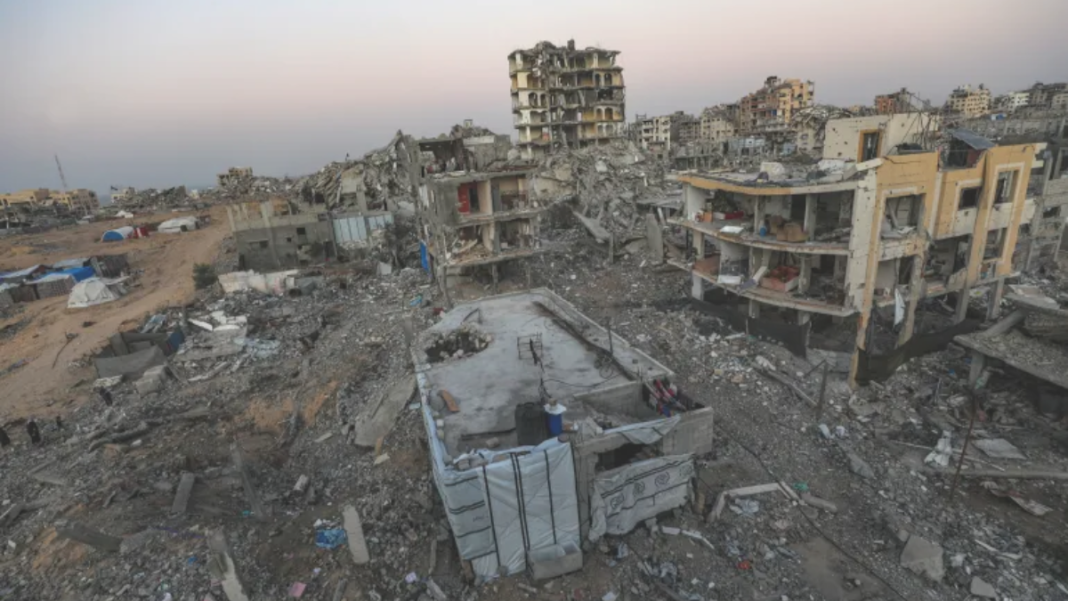Pakistan is once again at the centre of a major international discussion. A new United Nations Security Council resolution has opened the path for a transitional system and an International Stabilisation Force (ISF) in Gaza. This force is designed to help bring order, safety and basic governance after long years of conflict. Pakistan voted in favour of the resolution, but it also expressed concerns about missing details. This has raised a big question: Can Pakistan join the Gaza stabilisation force without facing backlash at home?
Growing Pressure and Stabilisation Challenges
Pakistan’s representative at the UN supported the resolution and thanked its authors. However, he also said some crucial suggestions did not make it into the final agreement. These gaps include how the transitional administration will work, how the governing board will function, and what exact role the stabilisation force will play on the ground.
Even with these concerns, Pakistan had already supported a 20-point ceasefire plan earlier, which forms the base of the current stabilisation framework. Many Arab and Muslim countries have also supported the plan, though carefully. Because Pakistan has one of the largest armies in the Muslim world, many believe it may be asked to contribute troops to the stabilisation force.
US immigration detains British commentator Sami Hamdi—visa revoked amid Israel-Gaza controversy
However, the idea of joining such a mission carries emotional and political weight inside Pakistan. The country has always supported Palestinian rights and does not recognise Israel. Its passport even states that it cannot be used for travel to Israel. For many people, the thought of Pakistani troops working near Israeli forces — even indirectly — is very sensitive. This makes the stabilisation mission a subject that needs extreme caution.
Meanwhile, Pakistan’s relations with Middle Eastern nations have grown stronger. Leaders have travelled to key countries, signed defence agreements and joined international gatherings focused on the Gaza crisis. These moves show that Pakistan’s importance in regional stabilisation efforts is increasing, adding additional pressure on Islamabad.
Government Communication and Stabilisation Decision-Making
So far, the government has remained quiet about its final decision. Officials say no choice will be made without consulting parliament, security institutions and senior leadership. They also note that the stabilisation force still lacks clear guidelines, making it difficult to take a firm position.
Security specialists within Pakistan believe that the matter is too sensitive to be kept behind closed doors. They expect that once the stabilisation force’s structure becomes clearer, national leaders will discuss the issue openly. Only then will Pakistan be able to evaluate the risks and decide whether to join.
G20’s Crucial Showdown: Gaza Conflict Sparks Global Tensions
International reports have listed Pakistan among the top potential contributors to the stabilisation force, along with a few other Muslim-majority countries. Still, some countries have already refused to participate unless the legal structure and rules of engagement are fully clarified.
The resolution also calls for Gaza to be demilitarised, with all weapons held by non-state groups handed over. Resistance groups have rejected this demand, saying it does not fully protect Palestinian rights and may put Gaza under unwanted outside control. These disagreements make the stabilisation mission even more complicated.
To prepare for the mission, nearly 200 foreign personnel have already been deployed near Gaza to create coordination centres. This shows that the international community is moving forward, and Pakistan is expected to make its intention known soon.
High Stakes at Home and Abroad
Pakistan has one of the strongest peacekeeping traditions in the world. It has thousands of trained soldiers who understand how to operate in conflict environments. This experience makes Pakistan one of the most trusted contributors to global stabilisation missions.
However, Pakistan is also dealing with major security issues at home and along its borders. Experts say that the number of troops needed for the stabilisation force may not be very large, and Pakistan may not have to reduce troops stationed on its eastern or western borders. Even then, any move that places Pakistan in a situation where it may appear to coordinate with Israeli forces could lead to backlash within the country.
Some analysts believe Pakistan’s financial challenges mean it cannot ignore the requests of friendly nations who support it economically. Others warn that even a small link to Israeli operations could lead to confusion, anger and mistrust among the public.
West Bank Crisis: Unstable Alliance in Israel’s US Visit Amid Gaza Conflicts
There are also discussions on whether Pakistan would have to deal directly with Israeli authorities. Some experts believe that countries which already recognise Israel could handle all coordination, allowing Pakistan to focus only on ceasefire monitoring and protecting civilians. However, this does not fully remove the political risk.
For now, Pakistan must balance two powerful forces — international expectations linked to the stabilisation mission and the possibility of domestic backlash. The situation remains delicate, and every decision carries weight.

